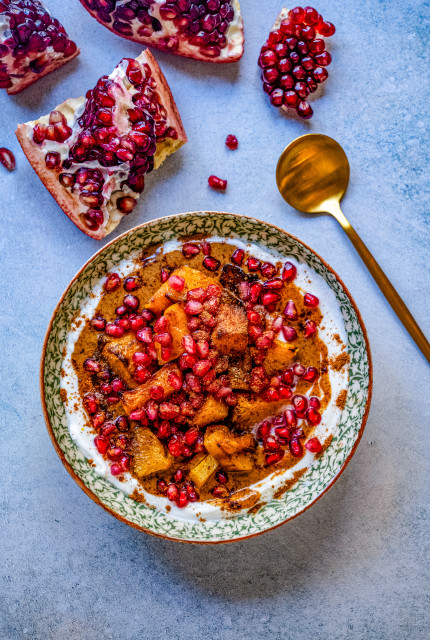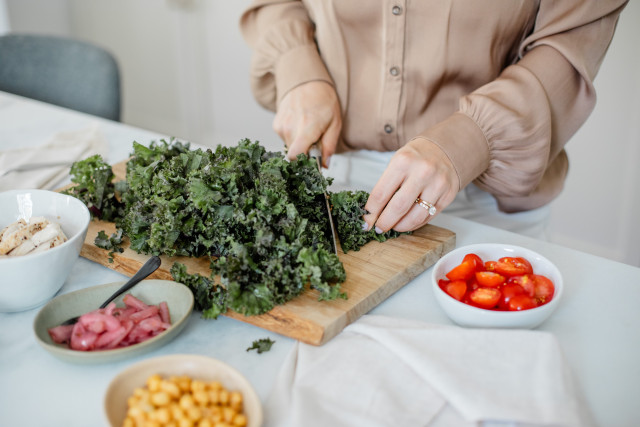
Sugar vs Natural vs Artificial Sweeteners: What’s Our Take?
Let’s talk sugar! You've likely been told to limit sugar for an optimal diet, but do you know the why? There are a few reasons why excess sugar can be harmful for health, the first of which is that too much refined sugar can cause blood sugar spikes. A blood sugar spike occurs when your body receives too many carbohydrates at once and scrambles to control the amount of glucose circulating in your blood. To control circulating glucose, your body secretes more insulin, quickly bringing down those blood sugar levels. The issue is that, as blood sugar rapidly plummets, so does your energy. This blood sugar crash can bring along with it fatigue, moodiness, increased cravings and brain fog to name a few. And, over time, chronically spiking your blood sugar can lead to metabolic issues such as insulin resistance, dyslipidemia, cardiovascular issues and type 2 diabetes. Excessive amounts of sugar can also contribute to inflammation. This is because, as sugar is metabolized, it can create reactive oxygen species which drive cellular damage and deplete antioxidant status.
The truth about sugar is that it can be addictive since consumption of sugar leads your body to release the feel good chemical known as dopamine. The issue with dopamine is that it is also a molecule that drives your pursuit of the substance that causes its release, meaning that eating sugar causes you to seek out more sugar. On top of that, over time, you produce less dopamine eating the same amount of sugar. That means that you need to continually increase the amount of sugar you consume in order to get the same pleasurable spike of dopamine. Over time, this can pack on both the added sugar and calories.
You might be thinking, if I should be avoiding sugar, can I add in non-nutritive sweeteners instead? Non-nutritive sweeteners include any form of sweetener that contains few, if any, calories. This includes artificial sweeteners such as aspartame or sucralose and natural sweeteners such as stevia or sugar alcohols. Let’s break each of these down a little further.
Artificial Sweeteners
Artificial sweeteners are any kind of non-nutritive sweetener that is man-made rather than found in nature. This includes things such as sucralose, acesulfame k, aspartame, and saccharine, or the brands you may know of as Splenda, Nutrasweet, or Equal. The issue with these sweeteners is that many, such as aspartame, have been found to be carcinogenic in animal studies. While this has not been found in human studies, it is always best to be on the safe side with manmade foods. On top of that, these sweeteners have been tied to changes in the microbiome that can increase cravings and increase the progression of GI disorders such as Crohn’s disease. Finally, it’s important to note that all of these sweeteners are anywhere from 200-600 times sweeter than sugar which can significantly impact your taste buds and cravings for sweet. As far as sugar substitutes go, it is best to avoid these forms of artificial sweeteners which can be found in diet sodas, protein bars, chewing gum and sugar free candy to name a few.
Natural Sweeteners
Natural sweeteners can be broken into two categories: sugar alcohol and natural non-nutritive sweeteners. Sugar alcohols are any sweeteners that end in -ol such as xylitol, erythritol and mannitol. They are found naturally in plenty of foods like certain fruits, and add a sweet taste while providing minimal calories. It does so because the absorption of these sugar alcohols is very low, thus creating a low glycemic load. While these sweeteners are safe to consume and can be a good sugar alternative, they do draw more water into your colon as they pass through your system undigested and can be fermented by the bacteria within your gut. This can lead to uncomfortable digestive symptoms such as gas, bloating, or diarrhea. If you are someone with a sensitive gut, it is best to avoid these kinds of sweeteners. Otherwise, it is likely safe to include them in small amounts, though the impact of consuming these on the microbiome is unclear.
Natural non-nutritive sweeteners are zero calorie sweeteners found in nature which include stevia and monk fruit. Like the artificial sweeteners, these sweeteners are anywhere from 200-600 times sweeter than sugar so they can have an impact on your cravings for sugar. However, outside of that, there have been no negative consequences found in consuming these sweeteners. Like the sugar alcohols, these sweeteners may impact your microbiome, but have not been shown to be possibly carcinogenic like the artificial sweeteners and are generally considered safe sweetening options.
Natural Sugars
And what about sugar from unrefined sources such as honey or maple syrup? The truth is that while these foods maybe have a few more minerals and less refining chemicals, they will still have the same impact on your blood sugar as standard table sugar. They should be treated like any kind of added sweetener and used in moderation.
Takeaway
In short, it’s best to limit your intake of any kind of added sweetness, whether that’s from sugar, non-nutritive natural sweeteners, or natural sugars like honey since too much can increase your cravings for sweet food. When you do want to add a sweetener, opt for non-nutritive natural sweeteners like stevia or monk fruit to avoid spiking your blood sugar. And when you do use sugar-containing sweeteners, opt for ones like honey or maple syrup in moderation and aim to consume your something sweet after a balanced meal to reduce a blood sugar spike.
Looking for more optimal treats and balanced meals to have before them? Our new program, The Being Collective (TBC), is designed to support our members with nourishing recipes, meal plans with automated grocery lists, as well as weekly calls with our team of dietitians and built-in community support. When it comes to meeting your health goals, if you're feeling short on time, lacking in ideas, or overwhelmed with choices, check out TBC!


